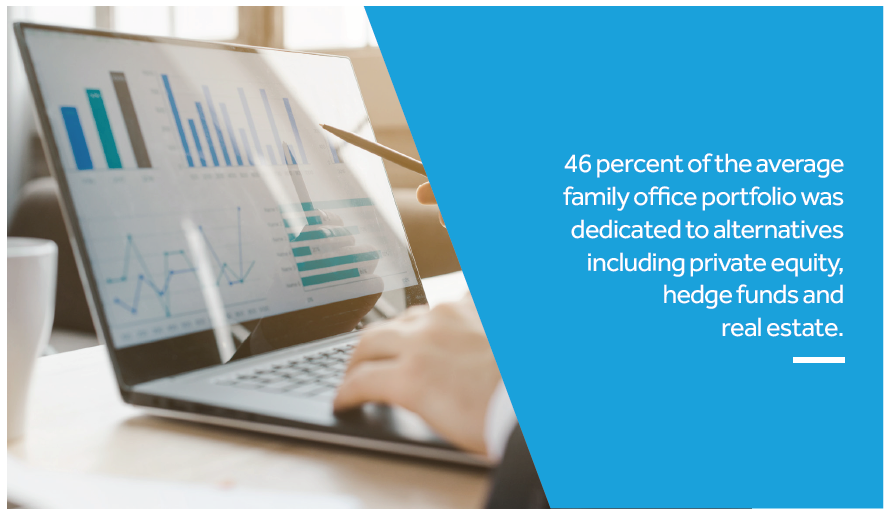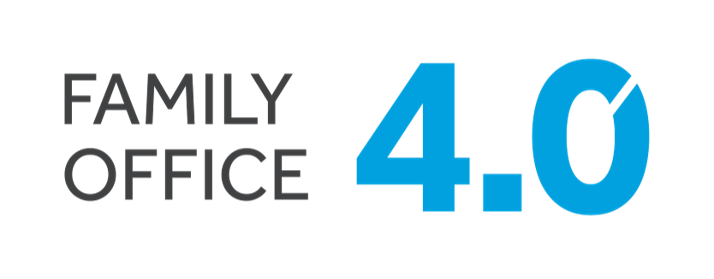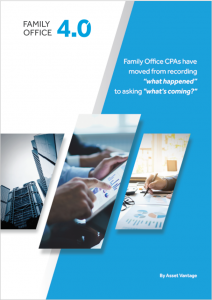Family Office CPAs have moved from recording “what happened” to asking “what’s coming?”
We live in a world where
• Principals don’t wait for end-of-quarter to ask, “How am I doing?”
• Overleveraged real estate doesn’t wait for month-end to hemorrhage cash.
• The need to harvest a loss to offset short-term capital gains doesn’t wait for year-end.
• Liquidity demands rarely defer to investment timing.
It’s an on-demand world where managing family wealth requires instant access to investment analytics, accounting, and all documents on a single screen – a consolidated view of a family’s net worth on one platform for accounting and portfolio-performance reporting. In this real-time environment, even the quickest “books” are too slow and spreadsheets are stale on arrival. Financial data that isn’t aggregated, accounted, reconciled, and reported on-demand ages quickly. And any platform that offers portfolio reporting without general ledger – that is, performance reporting without accounting reporting – presents an inadequate view of financial health.
In this real-time environment, even the quickest “books” are too slow and spreadsheets are
stale on arrival.

It’s no surprise, then, those wealthy families want more than a classic accountant trained to tell them what happened. They want a new-age accountant: a “wealth custodian” trained to see what’s coming. A trusted advisor whose skills they can depend on and whose insights they will cherish. Asset Vantage equips family office CPAs to undertake this transformation. It does this by providing performance reporting & general ledger at the speed of now!
The advisor’s loss is the accountant’s gain
In the past, wealthy families primarily sought investment advice from their financial advisors, as the name implies. That approach made sense when the majority of a wealthy family’s assets was invested in equities, as financial advisors consequently were able to provide advice based on fairly comprehensive knowledge of the family’s financial picture. However, wealthy families have been increasingly seeking alternative investments; in fact,
in 2018 nearly half (46 percent) of the average family office portfolio was dedicated to alternatives including private equity, hedge funds and real estate.



